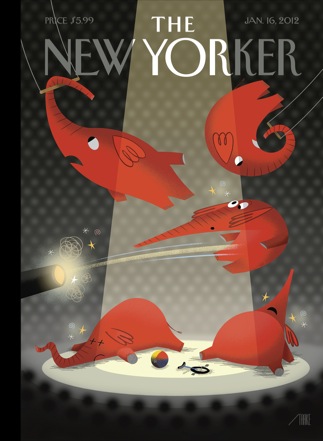# 185) “Logic Structuring”
January 19th, 2012
There’s a great article in this week’s New Yorker about the fundamental divide between information (i.e. Google) vs. entertainment (TV and movies).
Youtube Vs. Television: An interesting article this week in The New Yorker as Youtube launches an ambitious plan this spring to steal part of the television audience.
tubular
“REBRANDING” STORYTELLING FOR SCIENTISTS
Scientists suffer from “storyphobia” which is the irrational dread fear of the words story and storytelling. It is the fear that those terms will lead you into “bending the science to tell a better story” (the New Scientist review of my book wrongly accused me of advocating that). Which is a valid concern, but no reason to ignore the basic dynamics of structuring your presentation into a flow that will grab attention, hold it, and pay it off.
Maybe it’s time for a different term that has the same meaning but none of the baggage. How about, “logic structuring.”
I recently attended an event where several prominent scientists presented overviews of multi-investigator work on ecosystems. The talks were dreadful. They were utterly devoid of any logical progression. Just an episodic laying out of work that has been done. Which leads me to wonder something …
Why is it that ALL scientific journals have GUIDELINES FOR WRITERS in which the logical structure (Introduction, Methods, Results, Discussion) are plainly laid out with zero room for variation, yet there exists NOTHING of the sort for oral presentations? How is it that you can give the dullest, most rambling, borderline-incoherent of talks in science and nobody complains?
I spoke with folks after these talks. They agreed the talks were painfully dull, but some said, “they had to present a lot of information, they couldn’t help it.” Yes, they could. If they wanted to. If there were anyone saying, “you could do better.” Or if there were even SET GUIDELINES of some sort forcing people to start their presentation with an initial set-up posing the overall goals, why the goals are important — basically “what’s at stake” — what will happen if we don’t gather this information — and eventually some synthesis that brings it all together, BEFORE running out of time and ending with, “I guess that’s all I have time for today.”
Sheesh.
teletubbies
YOUTUBE VS. TELEVISION
Along these lines, there’s an excellent article in this week’s New Yorker about Youtube’s ambitious plans this spring to steal a significant part of the television audience through the launching of 20 new celebrity-driven channels on their website.
Right now Youtube is hugely popular, but they face one big dilemma — people watch 4-5 hours of television a day, but the average visitor time on Youtube is only about 20 minutes. At the core of this divide is the internet’s preoccupation with information (the more the merrier) versus the television world’s obsession with entertainment. The information people prefer ABUNDANCE, the entertainment people thrive on SCARCITY.
And this is what is at the heart of storytelling. You hold people’s interest by withholding (artfully) the information they are seeking — keeping the clues scarce — forcing the audience to follow your thought processes that lead to the eventual answer. This is what the weatherman on my local TV news show does with his trivia question each night. He starts his predictably dull report (the weather is mostly the same in L.A., just like Steve Martin’s bored weather guy in the movie “L.A. Story“) with a trivia question that you want answered.
If he were a scientist he would start his report with the trivia question, immediately give you the answer, then progress forward. But a storyteller poses the question then doesn’t “pay it off” until the end of the report/story. It’s a way of approaching the process of communication. Yes, it’s manipulative, but it can be done in a totally honest and “non fact-bending” way. If you do it well, people enjoy and appreciate the journey.
That’s what storytelling is about.
And guess what happened last week at the end of the storytelling workshop we did at the Alaska Marine Science Symposium. A native Alaskan man came up to talk about storytelling among their elders. I asked him to tell his favorite story that he’s ever heard. He began with, “It was a story an elder told about one day he was walking home across the ice when suddenly a huge crack appeared ahead of him, larger than he could traverse …”
And there you have it. Perfect storytelling. A tiny bit of exposition, then the establishment of a clear question — “How will he get across this crack in the ice?” Good storytelling is instinctual. Alaskan natives know this. Scientists should, too.
